Leadership History
Sarah Soule

Director: 2024–25
Sarah A. Soule is the Morgridge Professor of Organizational Behavior. Sarah’s research applies social movement theory to organizational processes, and organizational theory to social movement processes. For example, some of her research has looked at how social movements matter to organizational practice and policy change, net of the effects of diffusion.
Other research has examined the effects of network position on tactical innovation in protest and the role of coalitions and collaboration on protest tactic innovation. She is currently working on a study of how protest affects the outcomes of shareholder resolutions, and another study of how the public views symbolic statements by corporate leaders around social issues. She has written two books, the first with Cambridge University Press, entitled Contention and Corporate Social Responsibility, and the second with Norton, called A Primer on Social Movements.
Recent published work has appeared in the American Journal of Sociology, Administrative Science Quarterly, the American Sociological Review, Organizational Studies, the Strategic Management Journal, and the Annual Review of Sociology. She is an editor for the Cambridge University Press Contentious Politics series. She has served on a number of boards of nonprofit organizations, is currently a member of the Faculty Advisory Board to the Hasso Plattner Institute of Design (the Stanford d.school) and to the Stanford VMWare Women’s Leadership Innovation Lab, and is a Faculty Fellow at the Knight Hennessy Scholars Program.
Sarah is currently serving as the Dean of the Stanford Graduate School of Business.
Woody W. Powell

Director: 2022–23
Walter (Woody) Powell is the Sara Miller McCune Interim Director of the Center for Advanced Study in the Behavioral Sciences (CASBS), the Jacks Family Professor of Education, and (by courtesy) Professor of Sociology, Organizational Behavior, Management Science and Engineering, and Communication at Stanford University. He has been faculty co-director of the Stanford Center on Philanthropy and Civil Society since its founding in 2006. At PACS, he leads the Civic Life of Cities Lab, which studies civil society organizations in the SF Bay Area, Seattle, Shenzhen, Singapore, Sydney, Taipei, and Vienna. He is also an External Professor at the Santa Fe Institute. He has received honorary degrees from Uppsala University, Copenhagen Business School, and Aalto University, and is an international member of the Swedish Royal Academy of Science and The British Academy. He has served on the board of directors of the Social Science Research Council since 2000. With Bob Gibbons (MIT), he has led the Center for Advanced Study in the Behavioral Sciences (CASBS) summer institute on Organizations and their Effectiveness since 2016. He was also a fellow at the Center for Advanced Study of the Behavioral Sciences in 1986-87 and again in 2008-09.
Margaret Levi
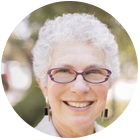
Director: 2014–2022
Margaret Levi (CASBS fellow, 1993-94) is the Sara Miller McCune Director of the Center for Advanced Study in the Behavioral Sciences (CASBS) at Stanford University, professor of political science at Stanford, and Jere L. Bacharach Professor Emerita of International Studies in the department of political science at the University of Washington. She was a John Simon Guggenheim Fellow (2002-03) and has been elected to the American Academy of Arts and Sciences (2001), the National Academy of Sciences (2015), the American Academy of Political and Social Sciences (2016), and the American Philosophical Society (2018). She served as president of the American Political Science Association in 2004-05. In 2014 she received the William H. Riker Prize in Political Science. In 2019 she was named the 25th laureate of the Johan Skytte Prize in Political Science. The prize was awarded to Levi for “having laid the foundations of our understanding of why citizens accept state coercion, by combining theoretical acumen and historical knowledge.
Iris F. Litt

Director: 2013–14, 2009–11
The first female and first MD director of the Center, Iris Litt is best known as a founder of the field of adolescent medicine and for her efforts on behalf of improving the health care of prisoners and juvenile detainees.
At Stanford University since 1976, she directed its division of adolescent medicine and the Institute for Research on Women and Gender (now the Clayman Center on Gender Research). A CASBS fellow in 1984–85, she has published numerous papers about women’s health, health and health behaviors of adolescents, and eating disorders. A native of New York, she earned her BA from Cornell University and her MD from the State University of New York, Downstate Medical Center. She was editor-in-chief of the Journal of Adolescent Health, president of the Society for Adolescent Medicine, and was elected to the Institute of Medicine of the National Academy of Sciences in 1988.
Stephen M. Kosslyn

Director: 2011–13
A neuroscientist known for his research on mental imagery, visual perception, and communication, Stephen M. Kosslyn has taught at Johns Hopkins University, Brandeis University, and Harvard University. At Harvard, he was one of the youngest people to be granted a full professorship in his department, later serving as dean. He earned his PhD at Stanford University.
During his directorship at the Center, Kosslyn launched the annual CASBS summit, which covers topics as varied as behavioral economics, organizational behavior, creativity, and innovation.
A Guggenheim Fellow, Kosslyn is a member of the American Academy of Arts and Sciences and a fellow of the American Psychological Association. He has published more than 300 scientific papers and 13 books; currently he is at work coediting an online reference, Emerging Trends in the Social and Behavioral Sciences: Interdisciplinary Perspectives, to be published by SAGE Publications in 2015. He is dean of Minerva University in San Francisco.
Kosslyn is also cofounder of the Journal of Cognitive Neuroscience; he holds patents in neuroimaging and data presentation.
Claude M. Steele

Director: 2005–09
Recognized as a leader in social psychology, Claude M. Steele was a CASBS fellow in the class of 1994–95 and is highly regarded for his work on stereotype threat, an experience of anxiety or worry about confirming negative stereotypes of one’s social group. During his time as director, Steele worked on the acclaimed book, Whistling Vivaldi and Other Clues to How Stereotypes Affect Us. Part of the Tyler Collection at CASBS, the book addresses minority underperformance in higher education.
Born in Phoenix, Illinois, Steele earned his PhD at Ohio State University. He has taught at the University of Utah, University of Washington, and University of Michigan. He is a member of the National Academy of Sciences, the American Academy of Arts and Sciences, and the National Academy of Education.
Read more about Claude M. Steele.
Doug McAdam

Director: 2001–05
When Doug McAdam was appointed director, he already had a close connection with the Center: he was a fellow in 1991–92 and 1997–98, at which time his research included work toward his book, Dynamics of Contention, part of the Center’s Tyler Collection. McAdam co-directed summer institutes in 1994 and 2000.
A professor in sociology at Stanford University, McAdam is the author of numerous books and papers in political sociology, particularly on the topic of social movements and revolutions. His most recent work is Deeply Divided: Social Movements and Racial Politics in Post-War America, published in 2014 by Oxford University Press.
McAdam earned his PhD at the State University of New York at Stony Brook and was on the faculty at the University of Arizona. He is a member of the American Academy of Arts and Sciences.
Neil J. Smelser
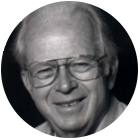
Director: 1994–01
A psychoanalyst and sociologist, Neil J. Smelser was lauded for his work on sociological theory as applied to economic institutions, collective behavior, social change, and personality.
The author of more than a dozen books, his most recent was The Odyssey Experience: Physical, Social, Psychological, and Spiritual Journeys. He described it as a "general study of taking leave from your daily circumstances and getting involved in something special," including sabbaticals at research institutions such as CASBS.
A Rhodes Scholar at the University of Oxford, he earned his PhD from Harvard University. He was a professor in sociology at the University of California, Berkeley, and a University Professor Emeritus of sociology. He has served on numerous national sociological organizations and was president of the American Sociological Association.
Born on his grandparents’ farm in Missouri, Smelser's family relocated to Phoenix when he was only six weeks old. Both his parents were educators: his father taught speech, drama, and philosophy at Phoenix Junior College; his mother, Latin and English in high school.
Watch Neil Smelser discuss his intellectual odyssey.
Neil Smelser, Distinguished Sociologist and Former CASBS Director (1930-2017)
Philip E. Converse
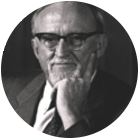
Director: 1989–94
A political scientist with degrees in English, sociology, and social psychology, Philip E. Converse was a CASBS fellow in 1979–80. The American Voter, a book he coauthored in 1960, is considered a groundbreaking work in shaping how we view political behavior: one of its primary, and controversial, themes was the assertion that most voters do not think in a sophisticated way about voting.
In this and other studies, he concluded that most American voters profess no clear ideology. And most voters don’t seek much information about an issue unless they believe it has a clear and immediate impact on their own lives.
Converse was born in Concord, New Hampshire, and earned his PhD from the University of Michigan, where he was later a professor. He was a fellow of the American Academy of Arts and Sciences, the National Academy of Sciences, and the American Philosophical Society.
Explore an overview of some of his papers and a more detailed biography.
Former CASBS Director Philip E. Converse, 1928-2014
Gardner Lindzey
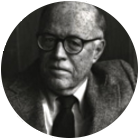
Director: 1975–89
The longest-serving director at CASBS, Gardner Lindzey was a fellow in 1955–56, its second class, and returned as a fellow twice in the next two decades (1963–64 and 1971–72). He is best known for editing The Handbook of Social Psychology, which remains in widespread use as a reference by graduate students and professionals. He began the project directly out of graduate school and continued to edit subsequent editions for the next 50 years.
He was often selected for advisory committees addressing important social and psychological issues, including a National Academy of Sciences panel studying the effects of federal drug laws.
Lindzey served as president of the American Psychological Association and was a member of the American Academy of Arts and Sciences, the Institute of Medicine, the National Academy of Sciences, and the American Philosophical Society.
He was born in Wilmington, Delaware, and earned his PhD from Harvard University. He taught at Harvard University, Syracuse University, the University of Minnesota, and the University of Texas, where he later became vice president for academic affairs.
The Handbook of Social Psychology
O. Meredith Wilson
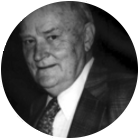
Director: 1966–75
Joining CASBS as director marked a role change for Owen Meredith Wilson, but he was not new to the Center: he had served on the board of trustees since 1961. Immediately before taking on the directorship, Wilson served as president of the University of Minnesota and prior to that as president of the University of Oregon, where he created its Institute of Molecular Biology.
Wilson served on the advisory committee of the Agency for International Development (AID) and was appointed to President Lyndon Johnson’s advisory committee on labor management policy. After retiring from CASBS, he was chairman of the Federal Reserve Bank in San Francisco. The Wilson Library at the University of Minnesota includes important collections in the humanities and social sciences as well as rare books.
Born in Mexico and raised in Utah, Wilson earned his PhD at the University of California, Berkeley. He taught history at Brigham Young University, the University of Utah, and the University of Chicago.
Read an overview of his papers, including many from his tenure at CASBS,
Ralph W. Tyler
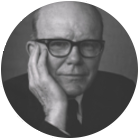
Director: 1954–1966
The first director of the Center, Ralph W. Tyler is considered one of the most influential educators of the 20thcentury. His assertion that learning is a process by which a student attains new patterns of behavior affects and informs education even today. His seminal Basic Principles of Curriculum and Instruction, first published in 1949, continues to sell worldwide.
A native of Chicago, Tyler grew up in Nebraska and earned his PhD at the University of Chicago, where he later served as chairman of the department of education and the dean of social sciences. An advisor to seven US presidents, Tyler was a founding member and president of the National Academy of Education.
His portrait, taken by a young Ansel Adams, overlooks the Tyler Collection in the Center’s library.
Read more about Ralph W. Tyler in Educating America by Morris Finder, one of Tyler’s students at the University of Chicago. It is part of the Tyler Collection at CASBS.
